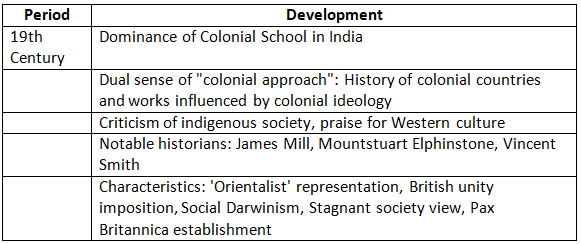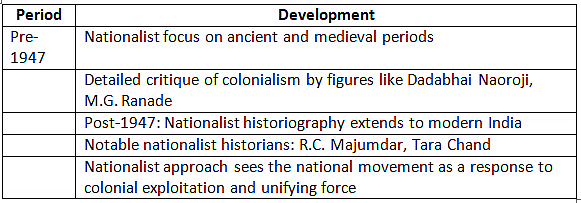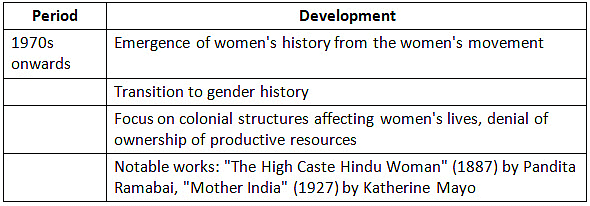Cheat Sheet: Major Approaches to the History of Modern India | History for UPSC CSE PDF Download
Colonial Approach/ Historiography

Nationalist Historiography/ Approach

Marxist Historiography/ Approach

Subaltern Approach/ Historiography

Communalist Approach

Cambridge School

Liberal and Neo-liberal Interpretations

Feminist Historiography

Conclusion
The historiography of modern India unfolds through diverse lenses, each providing a unique perspective on events and societal structures. From the Colonial approach with its imperialistic lens to the Subaltern approach highlighting the voices of the marginalized, and from Marxist critiques of class struggles to Feminist analyses of gender dynamics, these perspectives collectively contribute to a comprehensive understanding of India's complex history. Acknowledging these varied interpretations enriches our grasp of the multifaceted nature of historical narratives.
|
111 videos|495 docs|173 tests
|
FAQs on Cheat Sheet: Major Approaches to the History of Modern India - History for UPSC CSE
| 1. What are the major approaches to the history of modern India? |  |
| 2. How does the nationalist approach contribute to the understanding of modern Indian history? |  |
| 3. What is the significance of the Marxist approach in understanding modern Indian history? |  |
| 4. How does the subaltern studies approach challenge dominant historical narratives in modern Indian history? |  |
| 5. How does the cultural approach contribute to the understanding of modern Indian history? |  |

|
Explore Courses for UPSC exam
|

|

















